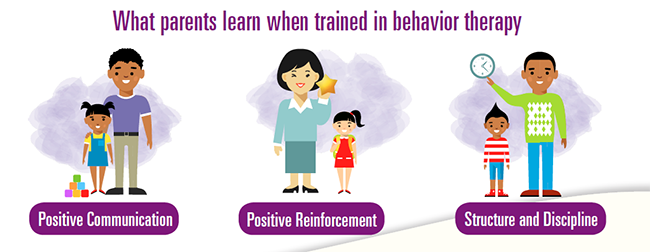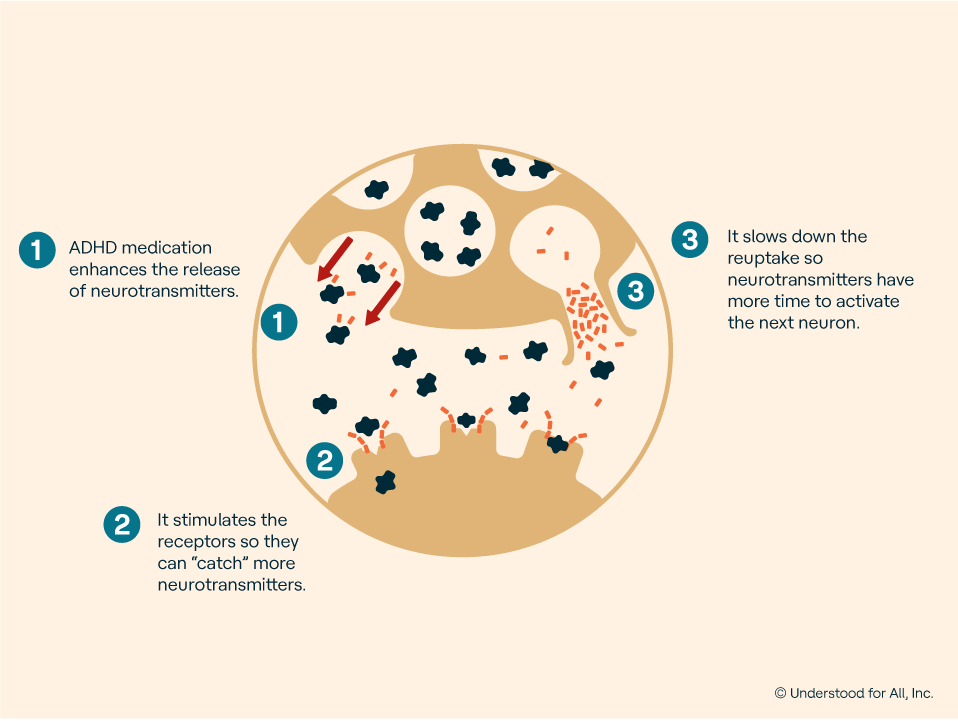Medication Management Services for Effective Treatment Plans
Medication Management Services for Effective Treatment Plans
Blog Article
Checking Out Effective ADHD Treatment Options for All Ages
The complexities of Focus Shortage Hyperactivity Condition (ADHD) present one-of-a-kind obstacles across different age groups, requiring a detailed exploration of reliable treatment alternatives. A combination of behavioral treatments, medicinal interventions, and way of living adjustments has shown pledge in dealing with the varied needs of people with ADHD. The efficacy of these strategies can differ dramatically based on personal situations, elevating vital questions regarding tailored techniques. As we take a look at the range of treatment modalities offered, it comes to be important to take into consideration not just their immediate influences yet additionally their long-term implications for individuals and households.
Recognizing ADHD and Its Influence
Attention-Deficit/Hyperactivity Condition (ADHD) is a neurodevelopmental condition identified by consistent patterns of inattention, attention deficit disorder, and impulsivity that can dramatically influence different aspects of an individual's life. It typically shows up in youth, although symptoms can linger right into adulthood. The core signs and symptoms of ADHD can interfere with educational efficiency, prevent social communications, and complicate occupational undertakings.
People with ADHD typically battle with preserving concentrate on jobs, organizing activities, and adhering to with on instructions, which can lead to scholastic underachievement (Depression Treatment). In social contexts, impulsivity may cause problems in forming and maintaining partnerships, as individuals might interrupt discussions or make hasty choices without considering consequences
The variability in symptom presentation indicates that ADHD can impact people differently, demanding an individualized strategy to monitoring. Comprehensive understanding of ADHD's nature and ramifications lays the groundwork for discovering ideal therapy choices tailored to each person's requirements.
Behavioral Therapies for ADHD
Various behavior modifications have been developed to effectively resolve the difficulties related to ADHD, concentrating on customizing particular behaviors and cultivating necessary abilities. Among one of the most identified strategies are cognitive-behavioral treatment (CBT), parent training, and social abilities training.
CBT helps people determine and change negative idea patterns and behaviors, advertising a much more favorable overview and improved self-regulation. This treatment typically includes sensible techniques for taking care of impulsivity and boosting organization. Moms and dad training programs equip caregivers by outfitting them with techniques to enhance positive behaviors and established consistent limits, which can be particularly useful for youngsters with ADHD.
Social abilities training is another vital part, training people with ADHD how to interact effectively with peers - Depression Treatment. This approach frequently involves role-playing and responses to boost communication, collaboration, and dispute resolution skills
Integrating these behavioral therapies right into a thorough therapy plan can significantly boost operating and lifestyle for individuals with ADHD. Ultimately, the performance of these therapies relies on tailored methods that consider the one-of-a-kind requirements of each person, therefore fostering resilience and versatility in day-to-day live.
Drug Options Available
For many individuals with ADHD, medicine can play a considerable duty in taking care of symptoms and improving general performance. Both key categories of medicines recommended for ADHD are energizers and non-stimulants.
Energizers, such as methylphenidate and amphetamine-based drugs, are the most commonly made use of treatments. These drugs work by increasing the degrees of natural chemicals, specifically dopamine and norepinephrine, in the brain, which helps boost attention and decrease impulsivity and hyperactivity. They typically produce rapid results, making them a recommended alternative for several individuals.

It is important for doctor to perform an extensive analysis to determine the most suitable drug based on private needs, case history, and possible see post side effects. Routine follow-up and tracking are also essential to make sure the effectiveness of the selected therapy and to make any necessary changes.
Lifestyle Adjustments to Think About
Taking care of ADHD efficiently extends past medication, as way of life changes can considerably improve total health and signs and symptom control. Incorporating organized regimens is critical; regular timetables aid people with ADHD manage their time properly and reduce feelings of bewilder.
Routine exercise is one more vital component. Exercise not just aids to improve concentration but likewise improves state of mind and minimizes anxiety levels. Tasks such as yoga or group sporting activities can be particularly helpful, advertising both physical conditioning and social communication.
Nutrition also plays a pivotal duty. Depression Treatment. A well balanced diet rich in omega-3 fats, whole grains, and lean healthy proteins can add to enhanced focus and cognitive function. Limiting sugar and refined foods is recommended, as these can aggravate hyperactivity and impulsivity
Rest health is vital for taking care of ADHD symptoms. Establishing a routine rest timetable and creating a peaceful setting can enhance sleep high quality, bring about much better interest and psychological regulation.
Alternative and Alternative Techniques
Alternative and holistic techniques to ADHD therapy offer a diverse variety of choices that enhance standard approaches. These strategies frequently focus on way of life adjustments, dietary treatments, and therapeutic methods that intend to enhance overall health while dealing with ADHD signs and symptoms.

Mindfulness and behavior modifications are likewise getting traction as all natural interventions. Practices such as yoga exercise, meditation, and cognitive-behavioral therapy can cultivate self-regulation and boost interest. These methods support psychological resilience, which is specifically advantageous for people with ADHD.
Organic supplements, such as ginkgo biloba and ginseng, are in some cases explored; nonetheless, it is essential to get in touch with health care specialists prior to incorporating these right into treatment plans. While alternative and alternative approaches can provide important support, they need to ideally be utilized combined with evidence-based therapies to accomplish optimal results for managing ADHD across all ages.
Conclusion
In summary, effective ADHD therapy requires an extensive method that includes behavioral therapies, drug, way of living alterations, and alternative techniques. Tailored interventions can significantly boost people' working and lifestyle, while ideal medicine ensures optimal sign administration. Adopting organized regimens, engaging in normal physical activity, and exercising mindfulness can enhance psychological policy and focus. This diverse strategy highlights the significance of individualized care in addressing the diverse demands look these up of individuals with ADHD throughout all age teams.
Report this page